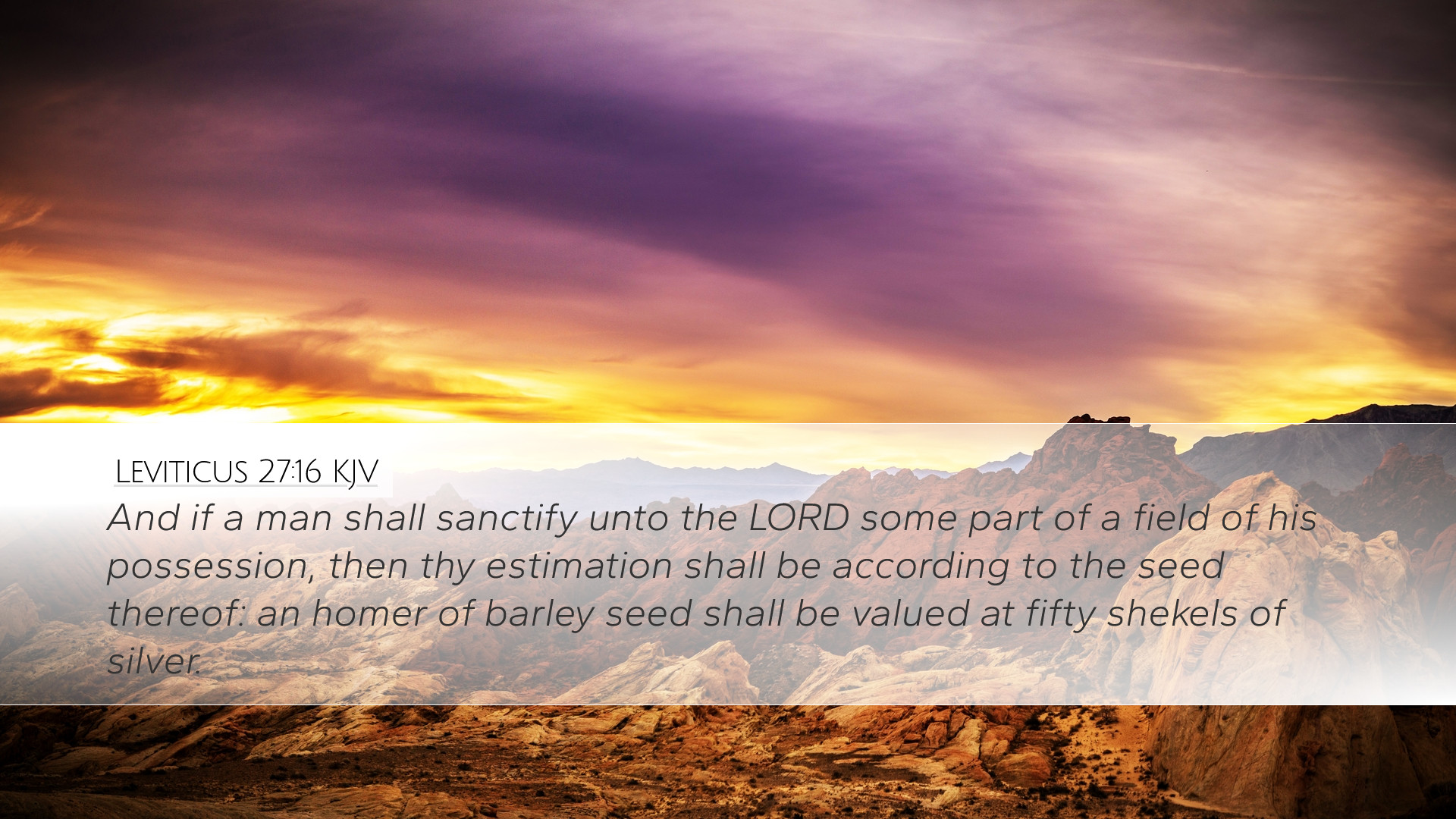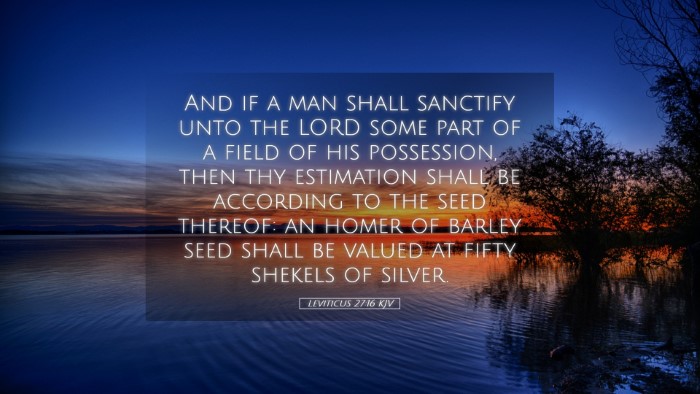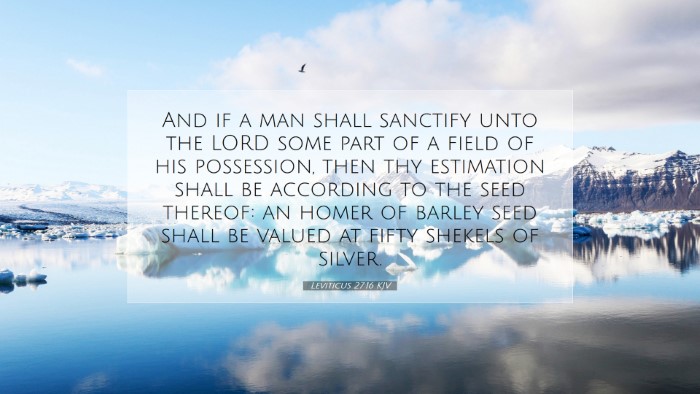Commentary on Leviticus 27:16
Text of Leviticus 27:16 (KJV): "And if a man shall sanctify unto the Lord some part of a field of his possession, then thy estimation shall be according to the seed thereof: an homer of barley seed shall be valued at fifty shekels of silver."
Introduction
The book of Leviticus, primarily focused on the laws governing the worship and holiness of the Israelites, contains a detailed account of offerings, vows, and valuations concerning various possessions, particularly in chapter 27. This passage addresses the act of dedicating a portion of one’s field to the Lord, emphasizing the dimensions of valuation in relation to sacred offerings. The insights drawn from respected commentaries provide a deeper understanding of the spiritual and practical implications of this commitment.
Historical Context
The instructions in Leviticus were given to the Israelites during their wanderings in the wilderness and reflect God's order for His people regarding purity, holiness, and the appropriate methods of worship. The Israelites were a nomadic people at the time, largely dependent on agriculture for sustenance. Thus, provisions related to land and produce held significant practical and spiritual relevance.
Key Themes in Leviticus 27:16
- Sanctification of Possessions: The act of sanctifying a field meant setting it apart for the Lord, indicating a willingness to dedicate personal possessions to divine purposes. This gesture reflects an important attitude of giving and recognizing God’s sovereignty over personal property.
- Valuation and Responsibility: The specified valuation of the field illustrates the broader principle of responsibility in stewardship. Each individual is called to accurately assess their offerings, both in terms of what is given and in its significance to their covenant relationship with God.
- The Concept of a Homer: The term "homer" refers to a specific measurement of grain, highlighting the agricultural society's reliance on quantifiable metrics. The consideration of "fifty shekels of silver" per homer of barley seed brings forth the idea that God requires a sincere and fair assessment in our dealings as worshipers.
Commentary Insights
Matthew Henry's Commentary
Henry emphasizes the concept of setting apart the fields, linking it to an act of faith where one trusts God's provision whilst giving up something that is usually deemed essential for livelihood. He posits that dedicating land to the Lord mirrors our total commitment to Him and encourages believers to contemplate the significance of what they choose to devote to God's service.
Albert Barnes' Notes
Barnes discusses the valuation process in detail, suggesting it is rooted in fairness and equity, emphasizing that one's offerings should genuinely reflect their dedicated value to the community and to God. This valuation, he suggests, not only serves to maintain the sanctity of the offering but also engenders a mindset of integrity in financial dealings within the community of faith.
Adam Clarke's Commentary
Clarke articulates the connection between giving and the acknowledgment of God’s ownership over all things. He notes that the monetary value assigned to the barley seed represents not only a physical measure but also a spiritual state, calling attention to the individual's heart condition towards giving. Clarke invites readers to examine their motives behind what they choose to offer to God.
Theological Implications
The implications of this verse extend beyond mere agricultural practices; they highlight a foundational principle in the theology of stewardship. In recognizing God’s lordship over their possessions, Israelite worshipers were being prepared to cultivate a heart of generosity and accountability.
Moreover, the assessment of value signifies the holiness associated with worship through sacrifice. It speaks to an understanding that worship involves more than the act of giving; it encompasses the attitude and reverence behind each offering.
Practical Applications
- Assessing Personal Resources: Believers today are called to examine their own 'fields'—the resources and talents at their disposal. In what ways can they sanctify these for divine purposes, reflecting their dedication to God?
- Embracing Fair Valuations: The principle of valuing offerings invites modern believers to engage in responsible stewardship, ensuring that their gifts to the church and to God’s mission are given with equitability and integrity.
- Understanding Ownership: The notion that everything belongs to God encourages a shift in mindset from ownership to stewardship among Christians. This calls for a deeper engagement in acts that uplift community and serve God’s purpose.
Conclusion
Leviticus 27:16 serves as a poignant reminder of the call to dedicate our possessions to the Lord. It illustrates the weight of responsibility in valuing what we offer and urges a deeper reflection on our relationship with God and our community. Through the insights of biblical commentary, this passage encourages believers to engage in thoughtful and generous stewardship as an act of worship and a demonstration of faith.


